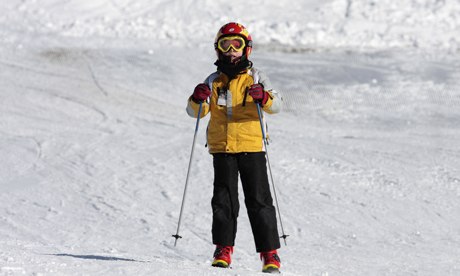
Ski helmets may be getting more fashionable but, as the New York Times has reported, that doesn't mean brain injuries are getting less common. Michael Schumacher was wearing a helmet when he hit his head on a rock in Meribel just over a week ago but that didn't stop him sustaining a very serious head injury (although doctors said he would have died on the piste if he hadn't been wearing one). The Times says that in the US about 70% of skiers and snowboarders now wear helmets (triple the number in 2003) but that brain injuries or deaths haven't fallen. The paper quotes a study in Wilderness and Environmental Medicine showing that in the US between 2004 and 2010 head injuries from snow sports rose from 9,308 to 14,947. In Europe, where helmet use is also increasing (up to 76% in Switzerland), so too are head injuries. So are helmets giving us a false sense of security, or is the data misleading?
The solution
It is hard to prove that helmets reduce head injuries because other things affect rates, such as increased risk- taking, improvements in detecting brain injuries and density of traffic on the slopes. Most serious head injuries occur when skiers or boarders hit trees, rocks or people. Head injuries are rare, but cause 60% of deaths in snow sports.
Eurosafe has a helpful summary of the evidence on the benefits, which cites a Canadian meta-analysis that adds up all the studies and finds helmets reduce head injuries by between 21 to 45% – the range being due to differences in the studies (some looked only at serious head injuries while others only considered certain ages). Helmets may be most helpful to children, with one study showing a halving in head injuries for those under 10. A guideline from the Agency for Healthcare Research and Quality in America advises that all recreational skiers and snowboarders wear helmets. It says that, as with research into motorcycle helmets, it isn't ethical to do a randomised controlled trial in which one group doesn't wear a helmet. But despite limitations, the authors say the evidence suggests helmets reduce head injuries, don't encourage risk-taking – and do not increase the risk of neck and upper spine injuries – and should therefore be promoted.
An editorial in the BMJ in 2011 also argued that helmets prevent head injuries and that helmet use is higher in skilled skiers – not riskier ones. It said that while helmets slightly impair hearing, they do not affect vision, which is more important in avoiding collisions. It may be, as some experts argue, that how people behave on the slopes is a more important factor than helmets. But since behaviour change can take some time, it makes sense, on balance, to stick with helmets in the meantime.

